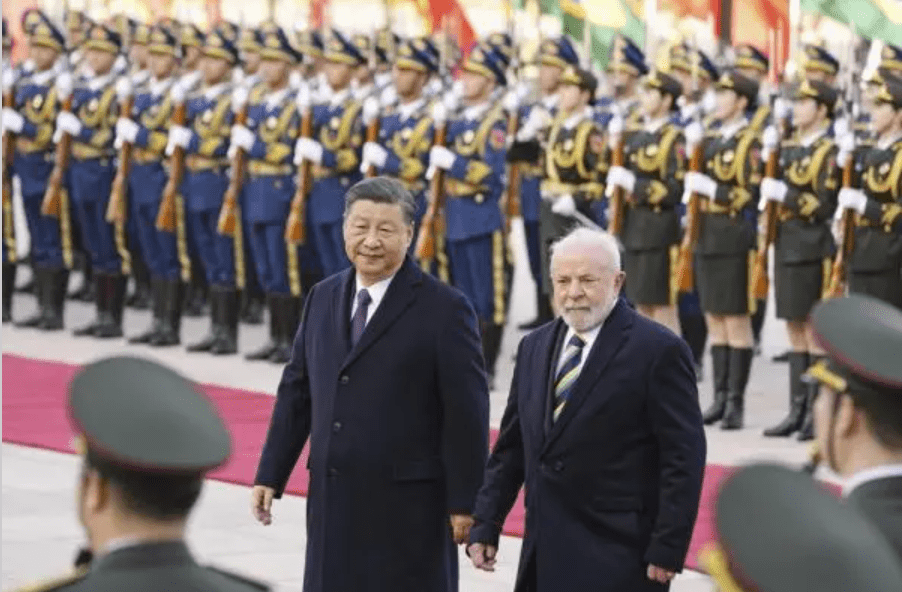Lula’s trip to China
The government of Brazil is required by the constitution to uphold human rights as a cornerstone of the nation’s foreign policy.
So, it stands to reason that when President Lula recently traveled to China, he brought up Beijing’s dismal record on human rights, right?
The emphasis on trade agreements is clear from media accounts of Lula’s discussions with his Chinese counterpart Xi Jinping. At least 15 bilateral trade agreements were signed. There are no agreements that defend human rights.
Remember that this is the same Lula who has openly stated a politics of social justice and human rights in addition to his constitutional duties. As we’ve previously noted in this newsletter, when Lula took office a few months ago, he pledged to move Brazil away from the authoritarian practices of his predecessor, Jair Bolsonaro, and to reverse the country’s slide in terms of human rights.
Evidently, the Lula Administration’s interactions with China fall outside of this. I suppose abuse and authoritarianism are OK when they involve other people?
Lula, or any other world leader, should not ignore China’s misdeeds. Since 2013, the Chinese government has increased repression nationwide under Xi’s direction.
Around a million Uyghurs are wrongfully detained by the government in Xinjiang’s “political education camps” and jails, where some of them are subjected to torture. They’ve created dystopian mass surveillance systems, taken away children from their families, and tried to eradicate Turkic Muslim religion and culture. All of these constitutes crimes against humanity.
In addition, Beijing is rapidly dismantling Hong Kong’s freedoms and erasing the language, culture, and religion of the Tibetan people.
And authorities are tightening their ideological and social controls across the entire country of China, jailing, harassing, and terrorizing anyone who disagrees with the leadership. Independent labor unions have long been outlawed in China.
To be clear, Bolsonaro’s previous administration in Brazil did not condemn China’s atrocities against human rights either. It even chose not to participate in a crucial vote at the UN Human Rights Council in 2022 over Xinjiang, aiding Beijing in covering up its misdeeds.
However, Lula had given the impression of promising something new, maybe more in keeping with the requirement of the Constitution that human rights be upheld in foreign policy.
Where was that spirit last week in Beijing?













